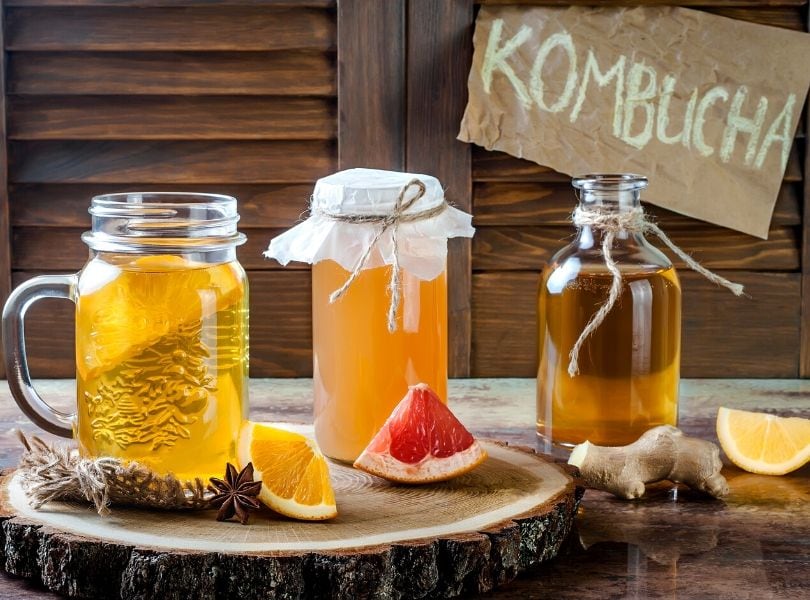We tend to associate bacteria with germs or infection and yet this couldn’t be further from the truth! Sure there’s the pathogenic component to getting exposed to the wrong kind of strains but then there are the good guys we need to really be aware of. There are billions of bacterial strains and when you take advantage of the good ones, you reap enormous health-related benefits. Thankfully, the research is hitting mainstream media and the message is circulating meaning that many of us incorporate a probiotic supplement into our daily diet. But did you know about all the natural sources of probiotics available to you? This blog post explains.
Fermented Foods: Natural Sources of Probiotics
So it turns out that in trying to avoid bacteria we didn’t do ourselves any favours. In fact, we don’t want to avoid bacteria at all, just source the right ones! We covered fermented food in a bit more detail in a previous blog post on Dearbhla Reynolds and Rethinking Bacteria. The research is clear; bacteria have a large role to play in overall health of an individual from gut health to immunity to even mental health. We have a symbiotic relationship with our bacteria meaning we co-exist. Most of your bacteria reside in the gut (gut flora) where they feed on certain foods that we eat and then provide our body with consequent benefits.
What do they eat? Probiotics and prebiotics of course! The food we eat contains certain components that bacteria love to feed on. So as your body is digesting the food, it’s serving all of this up to the gut. Different foods contain different kinds of probiotics and in varying amounts.
The list of natural sources of probiotics:
The following list is by no means exhaustive and is intended to give you some ideas on where to get more probiotics to feed your gut. A few points to remember:
- Try to rotate the variety as much as possible. There are so many different strains of beneficial bacteria that doesn’t just exist in one specific food.
- Try to eat a little bit at least once a day. But be careful not to overdo it. For some people, it takes a bit of getting used to and just building up the quantity of these foods in the diet slowly.
- Aim for a ¼ cup portion
- Try to make it yourself! There are so many fermentation cooking classes and cookbooks these days. Keep an eye on our Cooking Class page for the next one!
Kefir:
Kefir is a cultured dairy product made from fermenting milk. But you’ve likely also seen many variations on the market made from milk, water, coconut water. It’s made using what’s called ‘starter grains’ that are added to the liquid of choice. This contains a mix of lactic acid producing bacteria and yeasts.
Kombucha:
Another popular drink you will see on store shelves, Kombucha is also a fermented drink made from black tea and sugar. After fermentation, kombucha becomes carbonated and contains B vitamins, enzymes, and probiotics.
Yoghurt & Cheese:
These are fermented foods too, don’t forget! But buyer beware because both can be made with zero benefits whatsoever. So avoid cheap types of cheese like cheese sticks and shredded mixes in favour of good quality local picks. Likewise, with yoghurt watch out for sugar and try to choose plain full-fat flavours that retain all the benefits and don’t add any nasties.
Pickled Vegetables:
These make a great addition to any main meal and there’s so much to pick! Try sauerkraut or any pickle of choice.
Stewed apple:
It makes a great after dinner treat but stewed apple is actually a great prebiotic!
Kimchi:
A Korean staple, there are many versions you can make using kale, beetroot, carrot, cabbage and more. It’s made from salted and fermented vegetables that are mixed with a variety of spices.
Miso:
Another Asian staple, miso is made from fermented soy and barley or rice malt. Just be careful when making your choice because a huge amount of soy on the market today is GMO. It makes a great flavour addition to your meals and is brimming in probiotics.
Natto:
A popular Japanese dish consisting of fermented soy. It’s rich in probiotics that help enhance vitamin K absorption.
Tempeh:
This is a soybean product that is fermented to make tempeh. It’s rich in B vitamins.











